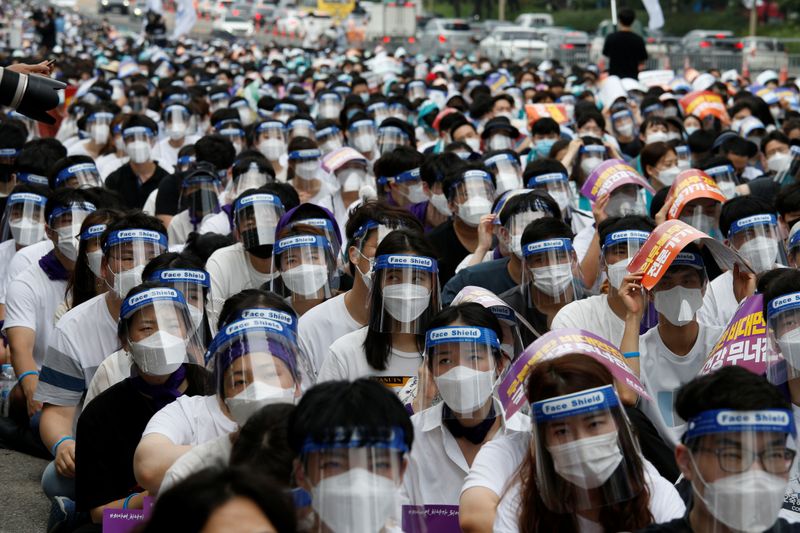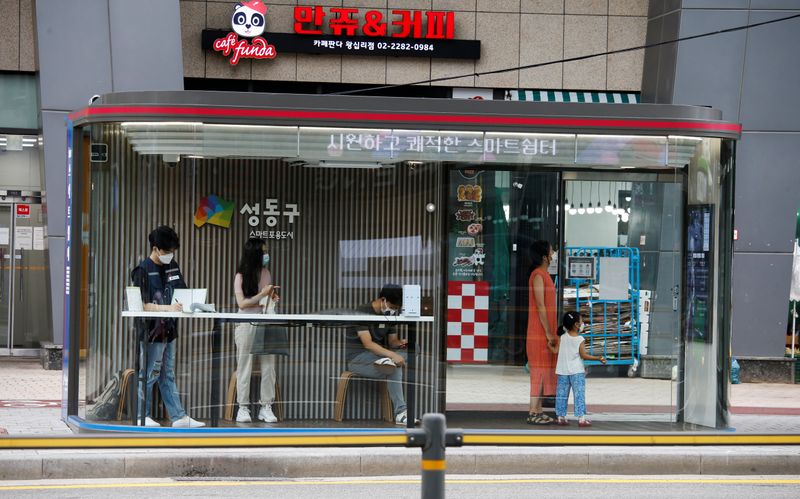By Sangmi Cha
SEOUL (Reuters) - A spike in new coronavirus cases in South Korea has prompted authorities to reimpose tighter social distancing curbs in Seoul, but that didn't stop thousands of demonstrators from protesting against President Moon Jae-in's policies.
For the second day in a row in over four months, the country has reported a sudden jump in locally transmitted cases, the Korea Centers for Disease Control and Prevention (KCDC) said.
The KCDC reported 166 new cases as of Friday, of which 155 were domestic, prompting authorities to re-introduce anti-virus measures as they worried about the spectre of a fresh wave of the disease.
The tougher rules come as thousands staged demonstrations in downtown Seoul, despite a ban on rallies in the capital city, with some conservative groups protesting against President Moon's recent real estate market policy and a series of sex scandals involving leaders of his administration.
The protests, with some carrying placards reading "Expel Moon Jae-in", coincided with the National Liberation Day from Japan’s 1910-1945 colonisation of the peninsula.
South Korea used invasive tracing and widespread testing to contain its first outbreak of the novel coronavirus, but Asia’s fourth-largest economy has experienced persistent outbreaks in recent weeks, mostly in the densely populated capital area.
The new cases took South Korea’s tally to 15,039 with 305 deaths by Friday midnight. The recent spike in infections are emerging in multiple clusters, including church gatherings and restaurants.
Over 100 infections were linked to members of a Seoul church alone and those who came into contact with the churchgoers. The authorities are testing 4,000 members of the church, Health Minister Park Neung-hoo told a briefing.
The authorities decided to upgrade the social distancing guidelines to second stage for Seoul and nearby Gyeonggi province, Prime Minister Chung Sye-kyun told a meeting on Saturday.
"We are facing a desperately dangerous situation that could lead to another wave of epidemics if we cannot overcome this crisis," said Chung.
Health authorities had categorized social distancing rules in three stages - stage 1 being the least intense and stage 3 the toughest, where schools and businesses are urged to close.

Second stage limits indoor gatherings to below 50 and outdoor gatherings to below 100, and bans spectators in sports matches, disappointing fans who had just gone back into baseball and soccer stadiums after a five-week delay to the season.
